8. A Hidden Life

The (once) reclusive and artfully enigmatic Terrence Malick (Badlands, Days of Heaven) brings his distinct brand of naturalistic beauty and poetic transcendence to the weighty true-life tale of conscientious objector Franz Jägerstätter (August Diehl), an Austrian farmer who, even under threat of execution, refuses to fight for the Nazis during World War II.
In atypical Malick fashion it’s as if the war barely intrudes in the overwhelming visuals of sky and lush green mountain slope. There’s a leaning towards drama over dialogue, and the detractors who felt Malick’s recent trend towards didacticism will not be won over, rather Malick devotees will find A Hidden Life as irresistible as catnip. This perhaps heavy-handed arthouse film is also a heartbreaking and sombre anti-war epic –– Jägerstätter was put to death by the Third Reich for undermining military actions, though later beatified and declared a martyr by the Catholic Church.
Also featuring the final performances from both Bruno Ganz and Michael Nyqvist, A Hidden Life is an absolutely unmissable experience for serious cinema lovers.
7. Varda by Agnès
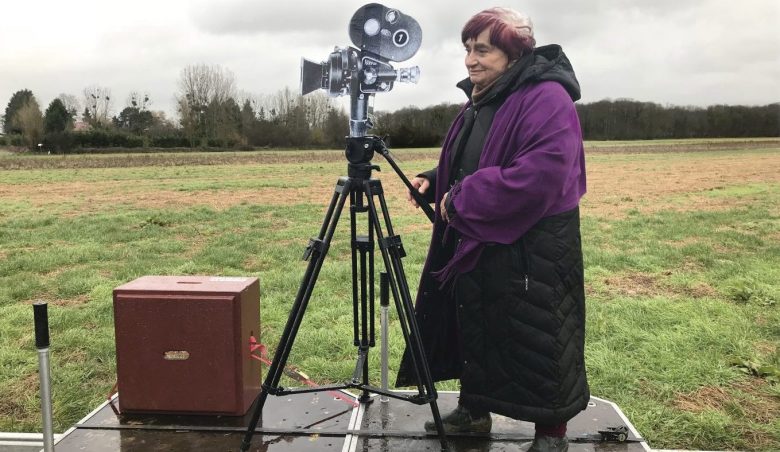
The valedictory film from the legendary and incredibly prolific French filmmaker Agnès Varda (sadly, she passed away on March 29th of this year, at 90 years young), this is a must-see love letter to the creative life for any true cineaste.
Tracing her storied career and life with her characteristic humor, heart, and vigorous energy, this is a generous goodbye from a true innovator who will be greatly missed. There will never be another like Agnès and this film, a joyful celebration, is an admirable adieu.
6. Pain and Glory
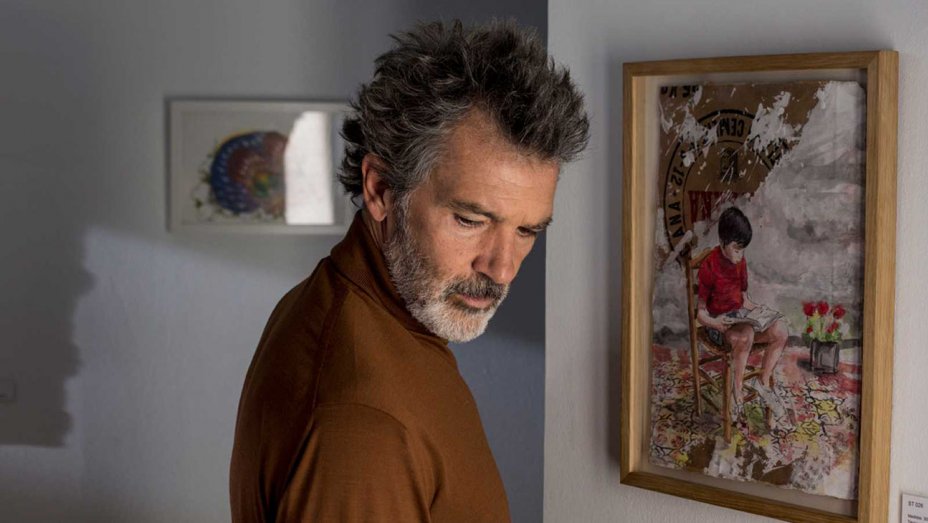
Pedro Almodóvar’s Pain and Glory is an engaging and artful portrait of an aging director (Antonio Banderas, in a career best performance) looking back on his life. Merging intimate confessions from Almodóvar’s own past with alluring and sometimes lurid fictions, sure you could say this is his 8 1⁄2 and as such it’s also a many splendored thing. For instance, Penélope Cruz and Julieta Serrano are each outstanding as Jacinta Mallo at different ages.
Self-reflexive, intense, well-intentioned, and celebratory of cinema, Pain and Glory is a late-career miracle from Almodóvar. It’s his best work in years and a generous gift to his fans.
5. Sorry We Missed You
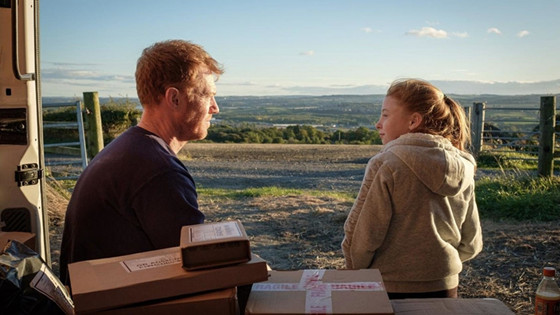
Ken Loach’s Sorry We Missed You is a beautifully told and wrenching domestic drama and one that sent me on several crying jags as it hit so close to home. Set in Newcastle-upon-Tyne, the film ostensibly tells the story of Ricky (Kris Hitchen) and his family who have been fighting a losing financial battle against debt since the 2008 financial crash.
A glimmering opportunity to take back some independence fleetingly appears with a costly new van and the promise of a franchise in the form of a self-employed delivery driver has Ricky reeling. Ricky’s family unit is strong one but when spread thin and pulled in painfully different directions everything starts to break apart, least of which the heart of the viewer. Powerful and poignant stuff with an emotional punch that will wind you. Recommended.
4. Bait
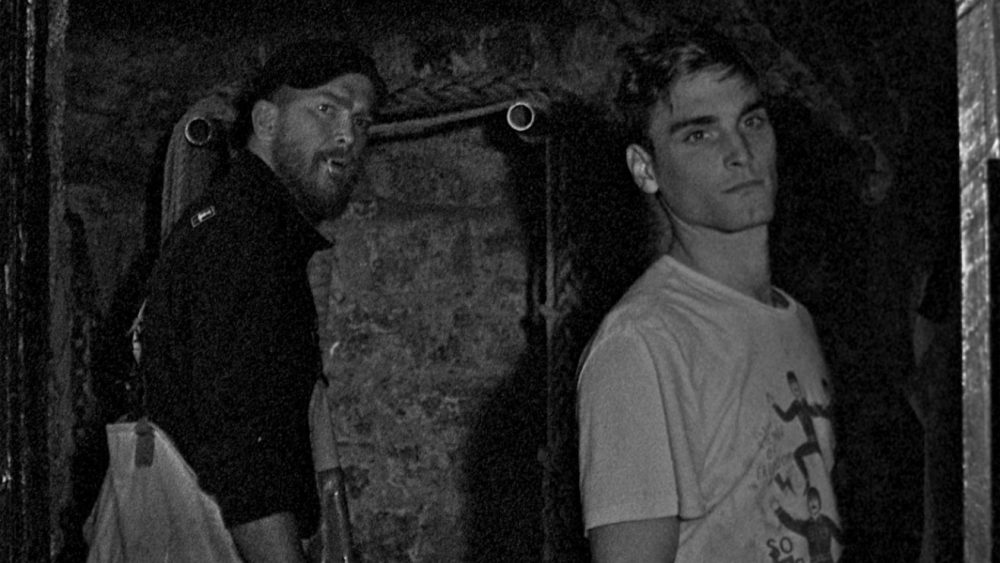
Cornish writer-director Mark Jenkin has, with his debut feature film Bait, created a daringly original and unique film that feels like a found artifact from an antiquated era. Shot on 16mm black-and-white Kodak film stock with a 43-year-old wind-up Bolex camera, there’s an unmistakable Dogme vibe to Jenkin’s class clash picture (Jenkin’s authored a very similar “Silent Landscape Dancing Grain 13 Film Manifesto” which is all about embracing handmade celluloid film work).
The narrative that Jenkin’s presents us in Bait, essentially framed around a longish flashback becomes something surprisingly mosaic-like, makes it a difficult film to ascribe a genre to. One part class polemic, it also has the nerve of a Western, the anxiety-building heft of a thriller, and even the sighing yen of a melodrama while also being a very British tone poem.
A parable that unfolds along the sea, Bait moves at times towards almost objective realism and subjective fantasy while packing an emotional punch. With weighty themes of gentrification and societal struggle as tourism wracks up against the old ways of a fishing village, Jenkin’s justifies his stylish and witty tale with a marvellous expertise.
3. Parasite
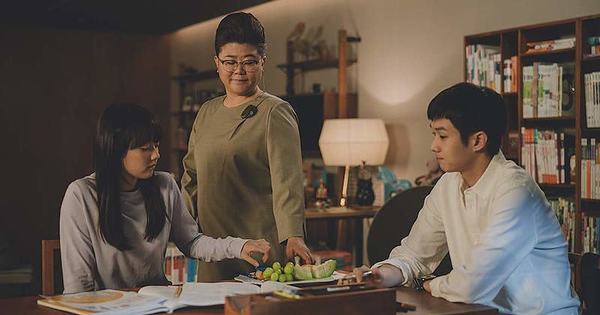
Korean filmmaker Bong Joon Ho is back and more brilliant than ever with Parasite, his so-very-deserving Palme d’Or-snatching socio-political critique that goes from slapstick comic hijinx to outright angry class rage and back with alacrity and ease.
Co-written along with Han Jin-won, Bong presents a full-flavored bravura delicacy about a family of four, the Kims, under very dire circumstances. They struggle to remain just above the poverty line in a slipshod semi-basement apartment, and as the early scenes of Parasite enumerate, often rather amusingly, they’re a greed-driven yet extremely resourceful bunch.
Equal parts artful and urgent, Bong’s masterful pisstake on class politics (after and even before all the blood and thunder, just who exactly are the eponymous parasites?) is a dark thriller loaded with laughs as well as a socially astute melodrama. Like his finest work, and Parasite easily ranks alongside Memories of Murder (2004) and Mother (2009), this is a film that defies easy genre-classification. Here the shifts of tone and sometimes breezy bits of horseplay often startle with stabs of frenzy and sorrow.
2. Portrait of a Lady on Fire
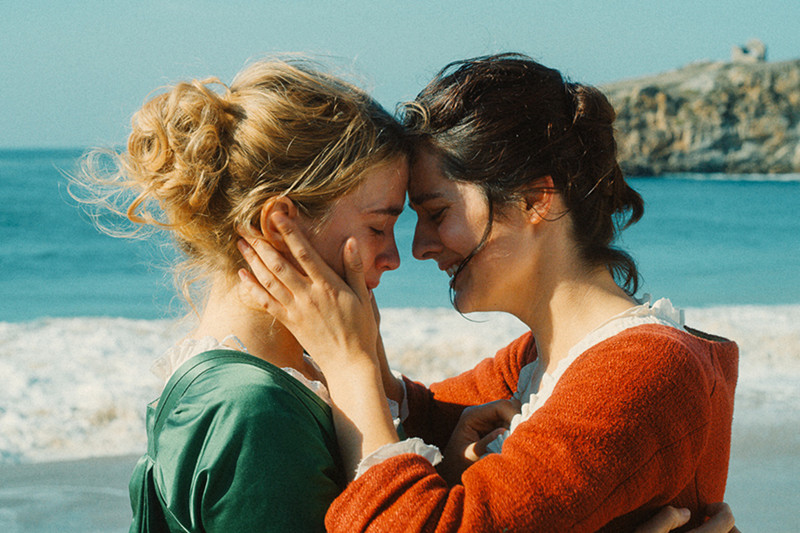
French formalist writer-director Céline Sciamma (Girlhood) is completely in her element with her exquisitely tender costumer, the laudable and lovely new film Portrait of a Lady on Fire. Having already achingly smouldered earlier this year at Cannes where it rightfully netted the award for Best Screenplay, Sciamma’s painterly perfection focusses on Marianne (Noémie Merlant) a 19th-century painter commissioned to a lush island home to paint the wedding portrait of ravishing young Héloïse (Adèle Haenel).
The deeper that Marianne and Héloïse sink into their foreordained love the more their world seems to feel like tragic symbolization, and the film is gorgeously lit to look like Neoclassical paintings from the era.
Seductively shattering and intimately breathtaking, Portrait of a Lady on Fire may leave certain aspects of these women’s deeply partaken love as emotionally unresolved, but it’s all so swooningly photographed, magnificently acted, stirringly told, and with a tone so close to illusory––as such it’s quite stunning.
1. The Lighthouse
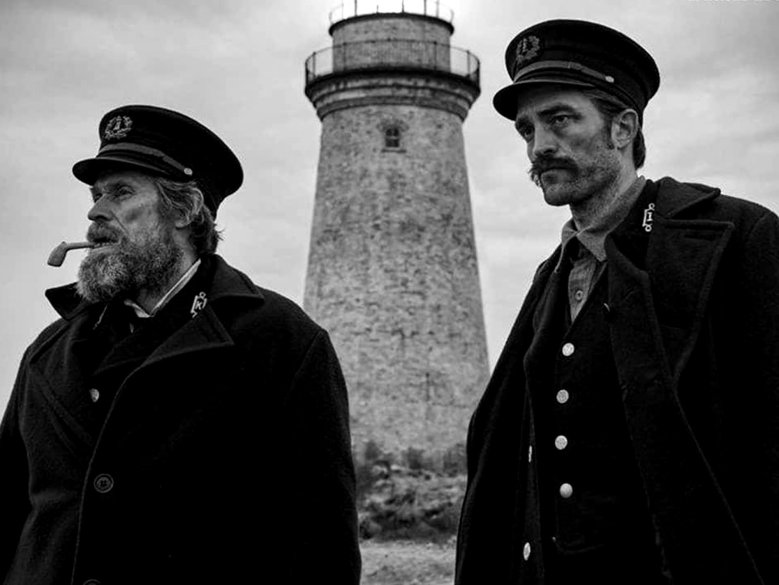
“Swab dog!” sputters a dour and drunken Thomas Wake (Willem DaFoe) to a puerile and seriously shook up Epharim Winslow (Robert Pattinson) in one particularly memorable moment in Robert Eggers’ entrancingly controlled psychological horror film, The Lighthouse. Ostensibly a chamber piece set in an isolated lighthouse along the enraged sea off the North American coast in the 1890s. It’s here that two desolate “wickies” (lighthouse keepers) must survive four impossibly long weeks before their relief comes, or rather, if relief ever comes.
The barren and forsaken island in which their lighthouse stands is photographed handsomely, thanks to Jarin Blaschke’s black-and-white lensing. Eggers also shows a fondness for close-ups and a gift for cinematic portraiture, all shot in a compact 1.19:1 aspect ratio. At times this give The Lighthouse a very vintage feel, particularly some dream-like visions of mermaids that recall the prestige horror of James Whale’s Bride of Frankenstein (1935).
The Lighthouse is a poetic study of guilt and mania as Eggers has fashioned a deep, and wonderfully disheartening tale, and one as provocative as the siren call that has brought so many seafarers to such lovely ruin.
Author Bio: Shane Scott-Travis is a film critic, screenwriter, comic book author/illustrator and cineaste. Currently residing in Vancouver, Canada, Shane can often be found at the cinema, the dog park, or off in a corner someplace, paraphrasing Groucho Marx. Follow Shane on Twitter @ShaneScottravis.